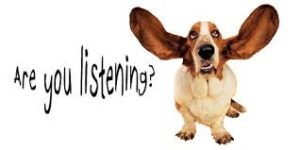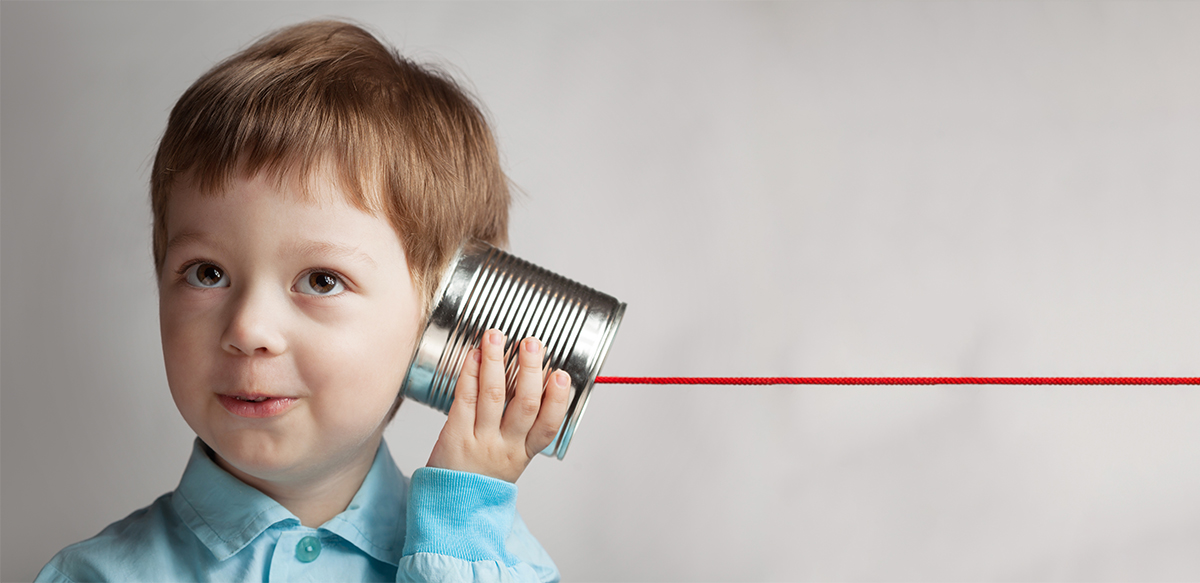
I have to admit that I am not a good listener. Actually, I listen well IF the subject interests me; then no one listens better than me. But listening in general is not one of my strengths. So I constantly have to practice to make myself respect those around me and listen properly.
I was helped on this journey on listening when one of our associates, Lisa Van Cleef, sent me an article from the Harvard Business Review written by Jack Zenger and Joseph Folkman titled What Great Listeners Actually Do.
In this article Jack and Joseph say “most people think good listening comes down to doing three things:
- Not talking when others are speaking
- Letting others know you’re listening through facial expressions and verbal sounds (“Mmm-hmm”)
- Being able to repeat what others have said, practically word-for-word.”
But the fact is that these points are only a small part of a listening skill. This reality caught my attention, especially as it relates to how we all interact with donors.
Jack and Joseph, to put it in their words, “analyzed data describing the behavior of 3,492 participants in a development program designed to help managers become better coaches. As part of this program, their coaching skills were assessed by others in 360-degree assessments. We identified those who were perceived as being the most effective listeners (the top 5%). We then compared the best listeners to the average of all other people in the data set and identified the 20 items showing the largest significant difference. With those results in hand we identified the differences between great and average listeners and analyzed the data to determine what characteristics their colleagues identified as the behaviors that made them outstanding listeners.”
“We found some surprising conclusions, along with some qualities we expected to hear. We grouped them into four main findings:
- Good listening is much more than being silent while the other person talks. To the contrary, people perceive the best listeners to be those who periodically ask questions that promote discovery and insight. These questions gently challenge old assumptions, but do so in a constructive way. Sitting there silently nodding does not provide sure evidence that a person is listening, but asking a good question tells the speaker the listener has not only heard what was said, but that they comprehended it well enough to want additional information. Good listening was consistently seen as a two-way dialog, rather than a one-way “speaker versus hearer” interaction. The best conversations were active.
- Good listening included interactions that build a person’s self-esteem. The best listeners made the conversation a positive experience for the other party, which doesn’t happen when the listener is passive (or, for that matter, critical!). Good listeners made the other person feel supported and conveyed confidence in them. Good listening was characterized by the creation of a safe environment in which issues and differences could be discussed openly.
- Good listening was seen as a cooperative conversation. In these interactions, feedback flowed smoothly in both directions with neither party becoming defensive about comments the other made. By contrast, poor listeners were seen as competitive — as listening only to identify errors in reasoning or logic, using their silence as a chance to prepare their next response. That might make you an excellent debater, but it doesn’t make you a good listener. Good listeners may challenge assumptions and disagree, but the person being listened to feels the listener is trying to help, not wanting to win an argument.
- Good listeners tended to make suggestions. Good listening invariably included some feedback provided in a way others would accept and that opened up alternative paths to consider. This finding somewhat surprised us, since it’s not uncommon to hear complaints that “So-and-so didn’t listen, he just jumped in and tried to solve the problem.” Perhaps what the data is telling us is that making suggestions is not itself the problem; it may be the skill with which those suggestions are made. Another possibility is that we’re more likely to accept suggestions from people we already think are good listeners. (Someone who is silent for the whole conversation and then jumps in with a suggestion may not be seen as credible. Someone who seems combative or critical and then tries to give advice may not be seen as trustworthy.)”
Think about these conclusions as you interact with the donors on your caseload. And ask yourself the following questions as you are listening:
- Are you really interacting with the donor as they are talking to you, and is that interaction characterized by a two-way dialogue, or are you just sitting there listening and nodding?
- Are you making the conversation with your donor a positive experience for them? For instance, when you are asking them information on their passions and interests, are you genuinely excited about the information they are sharing? And are you telling them that you are?
- Are you able to interact with the donor in a cooperative way where you are trying to help them in their quest to fulfill their passions and interests? Or do you debate the tiny points you might not agree with – points that really do not matter in the scheme of things?
- Are you able to suggest ways the donor can fulfill their passions and interests – or suggest alternate points on philosophy or approach your organization may take – in a manner that the donor positively accepts?
Think about tuning up your listening skills with your donors. Besides the fact that you will secure more information, your improved listening will result in a happier donor who believes you really value her.
Richard






This was the perfect message for me this morning. I have been feeling like my donor calls were falling flat. On a couple of calls yesterday I had real conversations going. Thanks for the reminder of how to be a good listener!